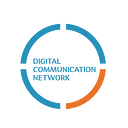How to give truth a louder voice online
Key points by Ioanna Georgia Eskiadi
In this webinar we discussed disinformation narratives and techniques, and highlighted ways that truth can have a louder voice online. Disinformation has gone from being a direct threat to our democracy to putting people’s lives at risk, and sprouting far-fetched extremist conspiracy theories.
Emotioneering and disinfonomics work shape opinions in many different ways, but we can take action to set the agenda instead. Disinformation has dominated our political sphere; we’ve seen anti-democratic actors becoming louder and louder. In the context of rising authoritarianism, we saw from 2016, a group of pro-European organizations and citizens come together to create more capacity, to mobilize action, to create the reverse of this event and essentially, community builder, networking space of collaboration between academia, civil society, media. Alliance4Europe has used social media intelligence to develop a tool that enables users to see what is actually happening in social media space and to be able to more effectively target their messages, target the audience and increase online engagement. It’s important to provide democratic actors a louder voice while respecting democratic ethics and people’s rights.
The most important thing is to change people’s attitudes of disinformation that causes disruption and changes attitudes in long term. Throughout the COVID-19 pandemic, conspiracy theories and disinformation have spread, like the ideas that Bill Gates financed the COVID-19 outbreak, the EU financed Wuhan institute, where COVID-19 started, that masks are dangerous, truth is being hidden: migrants are still flowing in Europe, and anti-vaccine theories. On the internet, what influences people the most is the fear, anger, manipulation, propaganda, hate speech and disinformation. Actors that are using disinformation partially govern authoritarian regimes, populist governments and know how to communicate to people, since disinformation is about communication and using the right techniques.
In normal circumstances we absorb information from a range of sources to create balanced understanding and healthy emotional responses which is called balanced input. But when we have a crisis response, we feel risk or even just frustrated, this triggers a fight, flight or freeze response. We have tunnel thinking to help us through, and our brains restrict the amount of information we take in, focusing on what’s related to the crisis so that it can keep us safe from harm in that specific situation. Governments, external actors, and hostile states control the behavior of people by amplifying feelings of crisis, threat, or frustration in day-to-day life, creating crisis situations, escalating or prolonging them and controlling the information related to the crisis situation. This is incredibly powerful and is possible through access to pliable information which can be created by anyone and seen by everyone.
Key points
· Disinformation has nominated our political sphere.
· Give voice to democratic actors.
· Rise of authoritarian regimes.
· Need for community building.
· Networking space of collaboration between civil society actors.
· Give citizens the chance to take action.
· Provide media literacy.
· Bring together people of different sectors.
· Change people’s attitudes.
· Disinformation destabilizes societies.
You can watch the virtual discussion on DCN Global Facebook Page.
Speakers
- Omri Preiss is co-founder and managing director of Alliance4Europe. He has worked as an EU affairs and civil society professional, as a policy advisor on foreign affairs, sustainability and human rights at the European Parliament, as well as in advocacy and lobbying on these issues. More recently, he has worked on developing civic tech tools and innovative approaches to campaigning and citizen participation.
- Maia Mazurkiewicz is co-founder and Head of Intelligence at Alliance4Europe, coordinator of the Polish NGO network the European Front. Maia has 15 years of experience in political management, foreign affairs, and communication. She is an expert in cybersecurity and fighting disinformation. A trainer specialized in project management, leadership, and campaigns. She has worked for the former President of the Republic of Poland.
- Dr. Angelos Kaskanis is the Project Manager of Tactics Institute For Security & Counter Terrorism. He has participated/co-organized several workshops in more than 20 countries that focus on Religious Extremism, Radicalization, Safety, and Security in Southeastern Europe, European Identity and Greco-Turkish Relations. Awards of academic excellence include scholarship from the Hellenic Foundation for Research and Innovation.
- Dr. Vassilis Kappis is a Deputy Director and Lecturer at the Centre for Security and Intelligence Studies in the University of Buckingham (BUCSIS), as well as a visiting Professor at the War Studies University of Poland. Before joining the University of Buckingham, Vassilis undertook post-doc research at the University of Tel-Aviv. His research interests lie in the strategic and psychological aspects of security crises and foreign policy decision-making, as well as the geopolitical dynamics of the Eastern Mediterranean.
This event is co-organized by Digital Communication Network SouthEast Europe Hub (DCN SEE) and World Learning and is part of DCNSEE’s Ideas in Action — Digital Engagement, a series of virtual events launched in the context of the COVID-19 crisis. DCNSEE is supported by the U.S. Department of State’s Office of Citizen Exchanges. DCN SOUTHEAST EUROPE HUB is a consortium of Aristotle University, Digital Communication Network, non-profits, public and private organizations and companies involved in the fields of digital communication, social impact campaigns, technology, and innovation. It is a unique, interdisciplinary coalition tapping into the best talent and resources across Europe.
